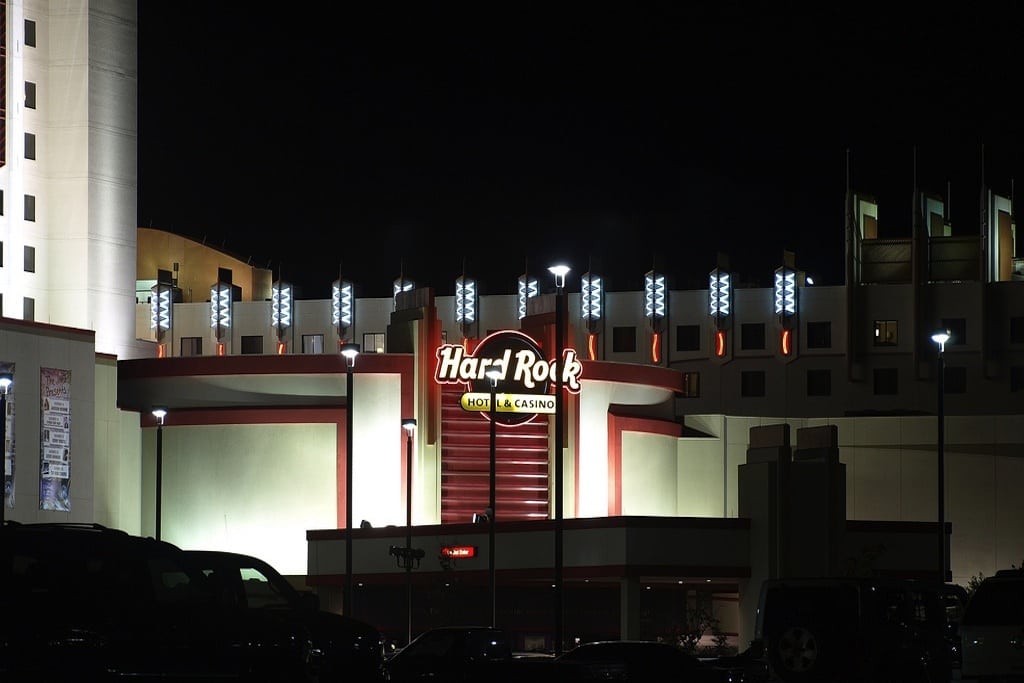Oklahoma tourism booms as tribal casinos plan million dollar expansions

Skift Take
The included timeline outlines the transition of Native American-run bingo halls to Hard Rock Casinos and the impact their growth has had on local economies and individual tribes.
Tribal gaming in Oklahoma began with small community bingo halls. But voter approval of Vegas-style games has caused the industry to explode across the state, including hundreds of millions of dollars spent in Tulsa.
With each $100 million expansion, tribal casino officials say it's no gamble. It's just a good investment with high returns.
"We don't just jump out there and do things," Cherokee Nation Businesses CEO Shawn Slaton said about making the leap in 2009 to expand the Cherokee casino in Catoosa. "We had done our homework and did our studies."
The move to rebrand the Cherokee Casino and Resort into the Hard Rock Hotel & Casino Tulsa was one of several major expansions of Tulsa-area casinos since Oklahoma voters -- in late 2004 -- approved Vegas-style games at tribal casinos.
Since then, casinos including the Cherokee Nation-owned Hard Rock, Osage Casino-Tulsa, and Muscogee (Creek) Nation's River Spirit Casino have produced expansion after expansion, including a quarter-billion-dollar project recently announced to expand and rebrand River Spirit Casino with Jimmy Buffett's Margaritaville logo.
"It (expanding and rebranding) was an immediate success for us," Slaton said. "It brought instant recognition and credibility. This property has just blossomed over the years."
Expansion impact
River Spirit Casino officials revealed the $250 million expansion and partnership with Margaritaville at their location along the Arkansas River, 8330 Riverside Parkway.
The expansion includes a 22-story, 500-room hotel, a new casino, restaurants, beach-bar area, a new theater and a new event center - all bearing the Margaritaville brand.
Tulsa Regional Chamber President Mike Neal said the casino boom has helped the Tulsa area grow in terms of jobs and entertainment opportunities that lead to more growth.
"The Tulsa region thrives on the foresight and ingenuity of businesses like the Creek Nation," Neal said at the expansion's unveiling. "I think success breeds success."
Neal said the casinos reach outside Oklahoma to bring in tourism and attract international entertainment opportunities to Tulsa in the same way the BOK Center has.
Pat Crofts, Muscogee (Creek) Nation Casinos CEO, said the expansion and Margaritaville brand are designed to draw people from outside the Tulsa market.
"It's not an endless market," Crofts said about the Tulsa area. "There are limits in the market. We would not be doing this expansion if we didn't think w
